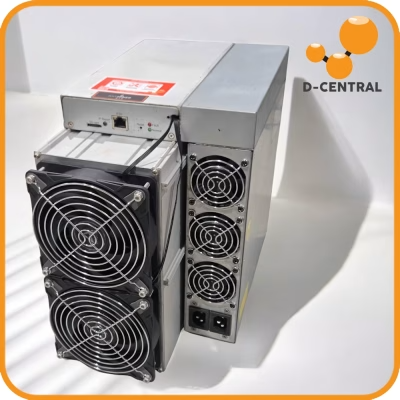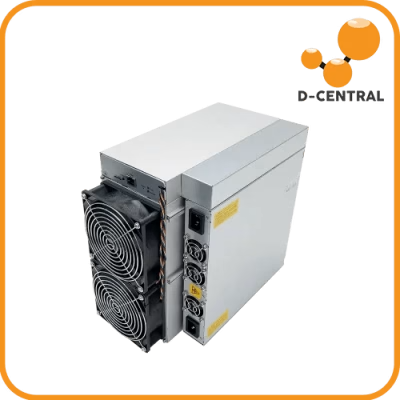In the dynamic world of Bitcoin mining, the choice of a managed hosting provider is a pivotal decision that can significantly impact the success and efficiency of your mining operations. As the cryptocurrency landscape evolves, the need for reliable, efficient, and secure hosting solutions becomes increasingly critical. Managed hosting services offer a streamlined approach to Bitcoin mining, providing the necessary infrastructure, security, and support to ensure that your mining rigs operate at their optimal capacity.
Selecting the right managed hosting provider is not just about finding a space for your hardware. It involves a careful evaluation of various factors that contribute to the overall performance and profitability of your mining activities. From understanding the technical capabilities of the hosting provider to assessing their security protocols and support services, each aspect plays a crucial role in ensuring a seamless mining experience.
In this guide, we delve into the essential questions and key considerations that should guide your decision-making process when choosing a managed hosting provider for Bitcoin mining. We will explore the nuances of server configurations, the importance of robust security measures, the intricacies of cost structures, and the criticality of energy efficiency in hosting services. Our aim is to equip you with the knowledge and insights necessary to make an informed choice, one that aligns with your specific needs and goals in the Bitcoin mining arena.
Understanding Managed Hosting Services
Managed hosting, in the realm of Bitcoin mining, refers to a specialized service where a provider manages and maintains the necessary infrastructure for Bitcoin mining operations on behalf of their clients. This service encompasses a wide range of responsibilities, including the provision of hardware, software, networking, and security solutions, all tailored to optimize the mining process.
In the context of Bitcoin mining, managed hosting plays a crucial role. It involves more than just providing space for mining equipment; it’s about creating an environment where this equipment can operate at peak efficiency. Managed hosting providers offer dedicated facilities equipped with advanced cooling systems, robust power supplies, and high-speed internet connections, all of which are essential for the intensive computational demands of Bitcoin mining.
The role of a managed hosting provider in Bitcoin mining operations is multifaceted. Firstly, they ensure the physical security and integrity of the mining hardware. This includes protection against theft, damage, and other physical risks. Secondly, they provide a stable and reliable power supply, which is a critical component for continuous mining operations. Fluctuations in power can lead to interruptions and inefficiencies, which can significantly impact the profitability of mining activities.
Another key aspect of managed hosting services is the optimization of network performance. Bitcoin mining requires a constant and fast internet connection to communicate with the blockchain network effectively. Managed hosting providers ensure that their clients have access to the necessary bandwidth and network stability to maintain uninterrupted mining operations.
Furthermore, managed hosting providers often offer additional services such as monitoring and maintenance of mining rigs, technical support, and even advice on maximizing mining efficiency. This comprehensive approach allows miners to focus on their core activities without worrying about the operational aspects of their hardware.
Managed hosting services in Bitcoin mining are not just about housing mining rigs; they are about providing a comprehensive ecosystem that supports and enhances the mining process. By entrusting the operational aspects to a managed hosting provider, Bitcoin miners can leverage professional expertise and infrastructure to maximize their mining output and profitability.
Key Questions on Technical Specifications
When venturing into the realm of Bitcoin mining with a managed hosting provider, understanding the technical specifications of their services is paramount. This knowledge not only ensures compatibility with your mining rigs but also maximizes efficiency and profitability. Here are some critical questions to consider regarding hardware and software solutions, server types, configurations, and their compatibility with Bitcoin mining rigs.
- What Hardware and Software Solutions are Supported?
- Inquire about the range of hardware supported by the hosting provider. Are they equipped to handle various types of ASIC miners and GPUs?
- Understand the software solutions they offer. Do they provide proprietary mining software, or are they compatible with popular third-party mining applications?
- Ask about the compatibility of their hardware with the latest mining protocols and algorithms. This ensures that your operations remain up-to-date with the evolving Bitcoin mining landscape.
- Details on Server Types and Configurations
- Delve into the types of servers used by the hosting provider. Are they using enterprise-grade servers that can handle the intensive workload of Bitcoin mining?
- Inquire about the server configurations. What are the specifications of their processors, RAM, and storage solutions? How do these configurations impact the efficiency of mining operations?
- Understand the redundancy measures in place. Do they have backup servers to ensure continuous operations in case of hardware failure?
- Compatibility with Bitcoin Mining Rigs
- Discuss the physical and network compatibility with different types of Bitcoin mining rigs. Can their infrastructure support the size, power, and cooling requirements of your specific mining equipment?
- Ask about the ease of scaling operations. How flexible is their setup in accommodating additional mining rigs or upgrading existing ones?
- Inquire about the network setup and its compatibility with mining pools. Does their network infrastructure offer the low latency and high throughput required for efficient mining?
- Customization and Optimization Options
- Explore the possibilities of customizing server configurations to suit your specific mining needs. Can they tailor their hardware and software solutions to optimize your mining efficiency?
- Understand their approach to optimizing power usage. How do they ensure energy efficiency, and what measures do they take to minimize the environmental impact of mining operations?
By thoroughly addressing these questions, you can gain a comprehensive understanding of the technical capabilities and limitations of potential managed hosting providers. This information is crucial in selecting a provider that not only meets your current mining requirements but also supports your future growth and adaptation in the ever-evolving Bitcoin mining industry.
Security and Compliance Queries
In the world of Bitcoin mining, where digital assets of significant value are at stake, the security and compliance measures of a managed hosting provider are not just important—they are essential. When evaluating potential providers, it’s crucial to delve into their security infrastructure, data protection protocols, and adherence to industry standards. Here are key queries to help you understand the provider’s capabilities in these areas.
- Inquiring About Security Measures
- What physical security measures are in place at the hosting facility? This includes surveillance systems, access controls, and on-site security personnel.
- How does the provider safeguard against cyber threats? Ask about firewalls, intrusion detection systems, and regular security audits.
- Inquire about network security protocols. How do they protect against DDoS attacks and ensure secure communication channels for your mining operations?
- Data Protection and Privacy
- Understand their data protection policies. How do they handle sensitive information, such as your mining data and personal details?
- Ask about encryption practices. Are data transmissions and stored data encrypted to prevent unauthorized access?
- Inquire about their compliance with data privacy laws and regulations, especially if you are mining in a jurisdiction with strict data protection standards.
- Compliance with Industry Standards
- What industry standards and certifications does the hosting provider adhere to? Look for compliance with standards like ISO/IEC 27001 for information security management.
- How do they stay updated with the latest industry practices and regulatory requirements related to Bitcoin mining?
- Inquire about any audits or assessments they undergo to maintain these standards.
- Policies on Data Breaches and Disaster Recovery
- Ask about their incident response plan in the event of a data breach. How quickly can they identify and contain a breach?
- Understand their disaster recovery plans. In case of a major incident (like a fire or natural disaster), how do they ensure the continuity of your mining operations?
- Inquire about backup procedures. How frequently do they backup data, and what is their protocol for data restoration?
By thoroughly exploring these security and compliance aspects, you can gauge the robustness of a hosting provider’s measures to protect your Bitcoin mining operations. This not only ensures the safety of your digital assets but also provides peace of mind, knowing that your mining activities are in secure and compliant hands.
Performance and Uptime Guarantees
For Bitcoin miners, the performance and reliability of their hosting provider are critical factors that directly impact profitability. Ensuring that your provider offers solid uptime guarantees and robust performance metrics is key. Here are some essential questions to ask about server uptime, performance metrics, and Service Level Agreements (SLAs), as well as how the provider manages downtime and maintenance.
- Questions about Server Uptime and SLAs
- What uptime guarantees does the provider offer? Look for specifics in their SLAs, such as 99.9% uptime guarantees, which are crucial for continuous mining operations.
- How are these uptime guarantees backed up? Inquire about compensation or remediation if the provider fails to meet their uptime commitments.
- Ask for historical uptime data or performance reports. This can provide real insights into their reliability and operational efficiency.
- Performance Metrics and Monitoring
- What performance metrics are monitored by the provider? Key metrics might include server load, network latency, and cooling efficiency, all of which can impact mining efficiency.
- How are these metrics reported to clients? Understand if you will have access to real-time monitoring tools or regular performance reports.
- Inquire about the provider’s capacity to handle peak loads. This is especially important in Bitcoin mining, where network difficulty and demands can fluctuate significantly.
- Handling Downtime and Maintenance
- How does the provider handle planned maintenance? Ask about their maintenance schedule and how they minimize impact on mining operations.
- Inquire about their protocols for unexpected downtime. Understand their response time and the steps they take to restore services quickly.
- What communication process is in place for notifying clients about downtime and maintenance? Timely and transparent communication is essential for planning and managing your mining activities.
- Redundancy and Backup Systems
- Does the provider have redundancy systems in place, such as backup power supplies and network connections, to ensure continuous operation?
- Inquire about their disaster recovery capabilities. How quickly can they recover from major incidents like power outages, hardware failures, or natural disasters?
By addressing these questions, you can assess the reliability and performance capabilities of a managed hosting provider. This information is crucial in ensuring that your Bitcoin mining operations run smoothly, with minimal interruptions and maximum efficiency.
Scalability and Flexibility
In the fast-paced and ever-evolving world of Bitcoin mining, the ability of a hosting provider to scale and adapt to changing needs is crucial. As your mining operations grow or fluctuate, your hosting solution should be able to match these changes efficiently. Here are key aspects to consider when assessing a provider’s scalability and flexibility, ensuring they can accommodate your dynamic Bitcoin mining requirements.
- Assessing Scalability for Growing Mining Operations
- How does the provider handle scaling up services? Inquire about the process and timeline for adding more capacity or integrating additional mining rigs.
- What are the limits of their scalability? Understand the maximum capacity they can handle, ensuring they can support your growth projections.
- Ask about the availability of additional resources like power, cooling, and network bandwidth. These are critical for scaling up mining operations effectively.
- Flexibility in Service Offerings
- Can the provider offer customized solutions tailored to your specific mining needs? This could include specialized hardware configurations, unique power requirements, or specific networking setups.
- How flexible are they in terms of contractual commitments? Explore options for short-term contracts or pay-as-you-go models that can adapt to your changing mining strategies.
- Upgrading and Downgrading Services
- What is the provider’s policy on upgrading services? Understand the ease and feasibility of enhancing your current setup, whether it’s for more powerful hardware, better cooling systems, or faster network connections.
- Conversely, how does the provider handle downgrading services? In times when you need to scale down operations, it’s important to know the options and implications, such as potential costs or contractual limitations.
- Adapting to Technological Advancements
- How does the provider stay abreast of the latest advancements in Bitcoin mining technology? Their ability to offer the latest and most efficient mining solutions is key to maintaining competitiveness.
- Inquire about their process for integrating new technologies. This includes the adoption of newer mining rigs, software updates, or innovative cooling techniques.
- Responsive Customer Support for Scaling Needs
- Assess the responsiveness and expertise of their customer support in handling scaling requests. Quick and knowledgeable support is essential for smooth transitions during scaling operations.
By thoroughly evaluating these aspects of scalability and flexibility, you can ensure that your chosen hosting provider can not only meet your current Bitcoin mining needs but also adapt and grow with your future ambitions. This adaptability is crucial in the dynamic landscape of cryptocurrency mining, where staying ahead of the curve can significantly impact your mining success.
Support and Maintenance Services
Effective support and maintenance services are the backbone of any successful Bitcoin mining operation. When choosing a managed hosting provider, it’s essential to understand the level of technical support and maintenance services they offer. This ensures that your mining hardware operates at peak efficiency and any issues are resolved swiftly. Here are key points to consider:
- Level of Technical Support Offered
- Inquire about the types of technical support provided. Does the provider offer 24/7 support, and is it accessible via multiple channels like phone, email, or live chat?
- Understand the expertise and experience of the support team. Are they well-versed in the specifics of Bitcoin mining and capable of addressing complex technical issues?
- Ask about the average response and resolution times for support requests. Quick turnaround times are crucial in minimizing downtime and maintaining optimal mining operations.
- Comprehensive Maintenance Services
- What does the maintenance schedule look like? Regular and proactive maintenance is key to preventing hardware failures and ensuring efficient mining.
- How does the provider handle hardware updates and repairs? Learn about their process for diagnosing and fixing hardware issues, as well as their policies on hardware replacements.
- Inquire about the provider’s capabilities in software updates and patch management. Keeping mining software up-to-date is essential for security and performance.
- Access to Support Staff
- Assess the accessibility of the support staff. Can you directly contact knowledgeable technicians, or is there a tiered support system?
- Understand the provider’s policy on on-site technical support. In some cases, direct intervention by a technician at the data center may be required.
- Ask about the training and qualifications of the support staff. A team with specialized knowledge in Bitcoin mining hardware and software will be more effective in addressing specific needs.
- Monitoring and Alert Systems
- Does the provider offer monitoring services for your mining rigs? Continuous monitoring can help in early detection of issues, preventing potential downtimes.
- Inquire about alert systems. Are you promptly notified in case of performance issues, security breaches, or hardware failures?
- Customized Support Plans
- Explore if the provider offers customized support plans tailored to your specific requirements. This can include prioritized support, dedicated account managers, or custom maintenance schedules.
By thoroughly evaluating the support and maintenance services of a managed hosting provider, you can ensure that your Bitcoin mining operations are backed by robust and reliable technical assistance. This not only helps in maintaining continuous mining activities but also provides peace of mind, knowing that expert help is readily available whenever needed.
Cost and Payment Structures
Navigating the cost and payment structures of a managed hosting provider is a critical step in ensuring that your Bitcoin mining venture is both profitable and sustainable. Understanding the pricing models, uncovering any hidden costs, and exploring payment options are essential to making an informed decision. Additionally, comparing the cost-effectiveness of different providers can help you find the best value for your investment. Here’s a guide to help you through this process:
- Understanding Pricing Models
- Inquire about the provider’s pricing structure. Is it based on a flat rate, pay-per-use, or tiered pricing model? Understanding this will help you predict monthly expenses and assess affordability.
- Ask if the pricing is based on factors like power consumption, space used, or network bandwidth. This is especially important in Bitcoin mining, where these factors can significantly impact costs.
- Determine whether the pricing model aligns with your mining operation’s scale and expected growth. A flexible pricing model can be more cost-effective as your mining activities expand.
- Identifying Hidden Costs
- Clarify what is included in the quoted price and what is not. Are there additional fees for setup, maintenance, or support services?
- Inquire about potential costs for upgrades, additional bandwidth, or power usage that exceeds the agreed limit.
- Ask about any termination fees or penalties for contract changes. This is crucial if you need to scale down or terminate services unexpectedly.
- Exploring Payment Options
- Understand the available payment options. Does the provider accept traditional payment methods, cryptocurrencies, or both?
- Discuss payment terms. Are payments required upfront, monthly, or based on usage?
- Inquire about any discounts for long-term contracts or upfront payments. This can lead to significant savings over time.
- Comparing Cost-Effectiveness
- Compare the provider’s pricing with other hosting providers. Ensure you are getting competitive rates for the services offered.
- Consider the value of additional services or benefits that may justify a higher price, such as superior customer support, advanced security measures, or more reliable uptime.
- Evaluate the overall return on investment (ROI). A slightly higher cost might be worthwhile if it translates into better performance and higher mining yields.
By thoroughly examining these aspects of cost and payment structures, you can make a well-informed decision that balances affordability with the quality and reliability of the hosting services. This careful consideration will help ensure that your Bitcoin mining operation is not only technically sound but also financially viable.
Energy Efficiency and Environmental Impact
In the realm of Bitcoin mining, energy efficiency is not just a cost concern; it’s also a matter of environmental responsibility. The environmental impact of mining operations has become a critical issue, with a growing emphasis on sustainable practices. When selecting a managed hosting provider, it’s important to consider their approach to energy efficiency and environmental impact. Here are some key questions and considerations:
- Inquiring About Energy Sources
- What are the primary energy sources used by the hosting provider? Understanding whether they rely on renewable energy sources, such as solar, wind, or hydroelectric power, is crucial.
- How does the provider’s choice of energy sources impact the overall carbon footprint of your mining operations? This is particularly important for companies aiming to maintain environmentally friendly practices.
- Assessing Energy Efficiency
- Ask about the energy efficiency of their data centers. What measures are in place to reduce power consumption without compromising mining performance?
- Inquire about the Power Usage Effectiveness (PUE) ratio of their facilities. A lower PUE indicates a more energy-efficient data center.
- How does the provider optimize the cooling systems? Efficient cooling systems are essential in reducing energy consumption in mining operations.
- Understanding the Environmental Impact
- What initiatives or policies does the provider have in place to minimize their environmental impact? This could include using energy-efficient hardware, recycling heat generated from mining, or participating in carbon offset programs.
- How transparent is the provider about their environmental impact? Look for providers who provide clear and detailed reporting on their sustainability efforts.
- Green Hosting Initiatives
- Does the provider participate in any green hosting initiatives or certifications? This can be a good indicator of their commitment to environmental sustainability.
- Inquire about future plans or ongoing projects to further reduce environmental impact. A provider that is actively working towards greener solutions is likely to continue adapting and improving in this area.
- Balancing Efficiency with Mining Efficacy
- How does the provider balance energy efficiency with the effectiveness of mining operations? It’s important that energy-saving measures do not significantly hinder mining performance.
By addressing these aspects of energy efficiency and environmental impact, you can choose a hosting provider that not only aligns with your operational needs but also your ethical and environmental values. This is increasingly important in a world where sustainability is not just a preference but a responsibility.
Conclusion
Selecting the right managed hosting provider is a critical decision in the journey of Bitcoin mining. The success and efficiency of your mining operations hinge significantly on the capabilities and reliability of your hosting partner. As we have explored, thorough vetting of a managed hosting provider is not just a recommendation; it is a necessity. From understanding their technical specifications and security measures to assessing their energy efficiency and environmental impact, each aspect plays a pivotal role in ensuring a seamless and profitable mining experience.
We encourage readers to use the questions and considerations outlined in this guide as a roadmap to navigate the complex landscape of Bitcoin mining hosting. By doing so, you can make informed decisions that align with your operational needs, financial goals, and ethical standards. Remember, the right hosting provider is not just a service vendor; they are a partner in your mining venture, contributing to its stability, scalability, and success.
For those in search of a hosting solution that embodies reliability, efficiency, and cutting-edge technology, we invite you to explore D-Central Technologies’ hosting solutions. At D-Central, we understand the nuances of Bitcoin mining and offer tailored hosting services that cater to both individual miners and large-scale operations. Our commitment to excellence, combined with our expertise in the field, makes us a trusted ally in your Bitcoin mining journey.
Discover how D-Central Technologies can elevate your mining operations. Visit our website to learn more about our services and how we can help you achieve your Bitcoin mining aspirations. Let us be the foundation upon which you build your mining success.







